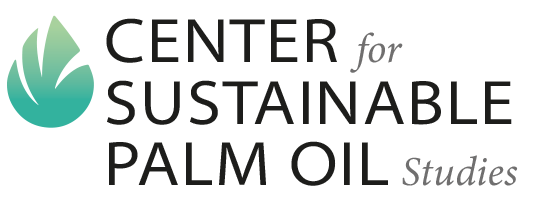
Just as the continent’s ambitious climate policies were forged by consensus, so too should its trade relationships with the wider world
Countries like America used Earth Day to extend olive branches, form new partnerships, and announce ambitious climate goals. But not everyone is in the reconciling spirit. Instead, the EU is doubling down on a carbon tax, a cumbersome levy which penalises countries for any failure to adhere to the Green Deal. As we enter a “decisive decade,” the European Union risks a divisive one.
A decade in which developing countries are isolated in economic and environmental ghettos by a one-dimensional policy – a “carbon tax.”
The Carbon Border Adjustment Mechanism (CBAM) was designed to punish imports of goods with a large carbon footprint. CBAM targets exporting countries that do not meet the same carbon restrictions and guidelines as European countries. But CBAM will have unintended and wholly counterproductive consequences around the globe.
The Biden administration has already condemned the measure as a surefire way to exclude emerging economies. It is quite simple: If developing countries are prohibited from the EU market, in order to avoid mass impoverishment, they will be forced to export to countries with fewer environmental regulations and trade restrictions.
In turn, the carbon tax will create trading circles of those who can afford carbon reducing measures, and those who cannot – a scenario where the global majority also misses the chance to “green” their economies before the effects of permanent climate change take hold.
This is not the first time the EU has removed emerging economies from its trading circle in the name of the environment. In order to combat deforestation, the European Union announced a blanket ban on the importation of palm oil for biofuels, with Belgium taking the lead.
But are all palm oil producers the same?
In Malaysia, for example, national efforts towards sustainable palm oil have culminated in the nationally mandatory Malaysian Sustainable Palm Oil (MSPO) certification scheme. Currently, almost 90 per cent of Malaysian producers have obtained MSPO certification, with the government fining non-compliance. Consequently, Malaysia has succeeded in a yearly decrease in deforestation since 2016.
Unfortunately, Europe’s palm oil ban – like CBAM – fails to acknowledge any progress, effectively penalizing producers who commit to environmental responsibility, while simultaneously encouraging all producers to market their goods to less environmentally conscious markets.
These measures even appear to breach international law and Malaysia has raised a formal dispute with the WTO against the EU, something which China and Australia have pledged to do if CBAM becomes a reality.
Likewise, I do not wish to see my country (The Gambia) or region (West Africa) subjected to discriminatory policy. While CBAM may have been conceived with the best of intentions, its fatal flaw is its inflexible approach – CBAM assumes the needs, capacities, and potentialities of different countries are the same whilst ignoring any milestone or step in the right direction.
A key component of the Paris Climate Agreement was supplying poorer countries with $100bn (£71bn) to cut carbon emissions—a promise that, incidentally, has not been met. That money could be used to provide information, technology, and expert support to build green partnerships between Europe and the global south which tackle emissions and – something which CBAM does not directly address, but is a leading cause of greenhouse gas emissions – deforestation.
Importantly, these partnerships could shape environmental policy to reward progress, and help avoid the inevitable outcome of an unyielding approach: A badly stratified world, where rich countries trade amongst themselves while the global south is left to fight global warming on its own. But more than warning the EU, I am interested in promoting cooperation between Africa, the rest of the global south, and Europe.
It cannot be forgotten that wealthier nations are responsible for most global demand and hence much of global emissions. Many of the products the EU wants to evaluate for their carbon footprint are made in the global south but intended for Europe. Instead of punishing the global south, as Belgium and the EU effectively do with the palm oil ban, shouldn’t they work with it?
And there is already a template for that kind of approach.
The UK’s Environment Bill serves as an example of a practical policy measure which takes into account the specific conditions of producer countries. The recently-introduced bill requires UK businesses to obey due diligence practices which make it illegal to import commodities that violate local environmental laws.
This Bill requires companies to prove compliance in their supply chains with local standards of production. This means that a British trader selling products containing palm oil from Malaysia would have to prove its adherence to the local sustainability scheme, such as MSPO. This approach is far more nuanced and more likely to succeed because it places wealthier and poorer nations on the same playing field.
We must envision trade deals with realistic benchmarks, ones which acknowledge the differences in capabilities, and promote global solutions to climate change. Importantly, we cannot enforce policies which fail to include a majority of the world – that is a surefire way to lose the climate battle.
Just as Europe’s ambitious climate policies were forged by consensus, so too should its trade relationships with the wider world.
Instead of pronouncing from on high, Europe might try a friendly conversation. Sit down with regions like West Africa and work on a mutually beneficial and practical set of environmental policies. Policies that involve fighting climate change–not each other.
By Muhammad Magassay, Gambian MP and Parliamentary Representative of ECOWAS (Economic Community of West African States)
Original Link: https://www.independent.co.uk/climate-change/opinion/climate-crisis-carbon-tax-eu-b1845456.html


